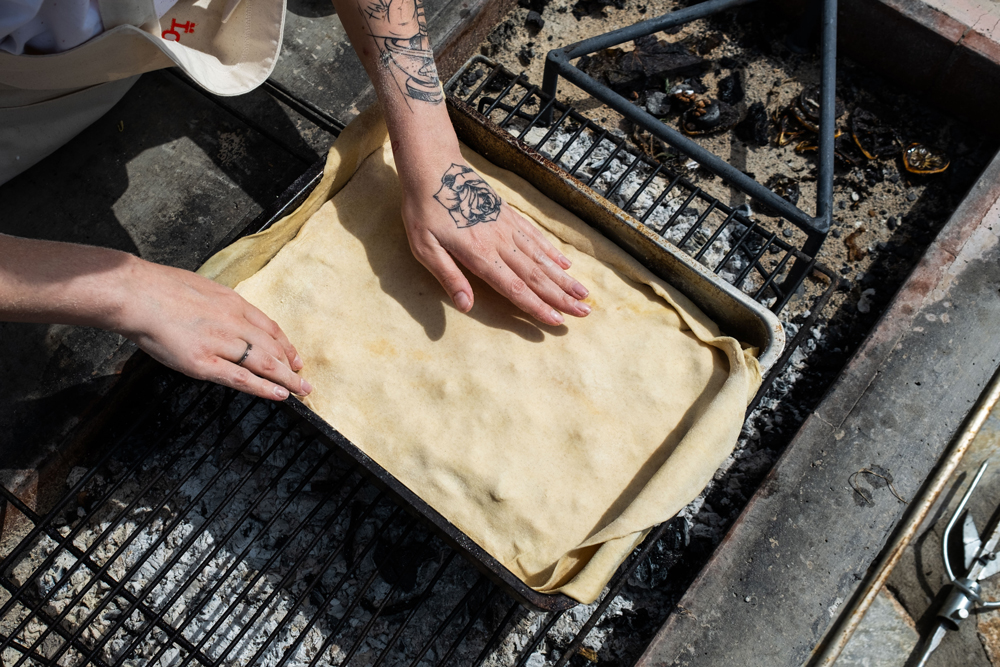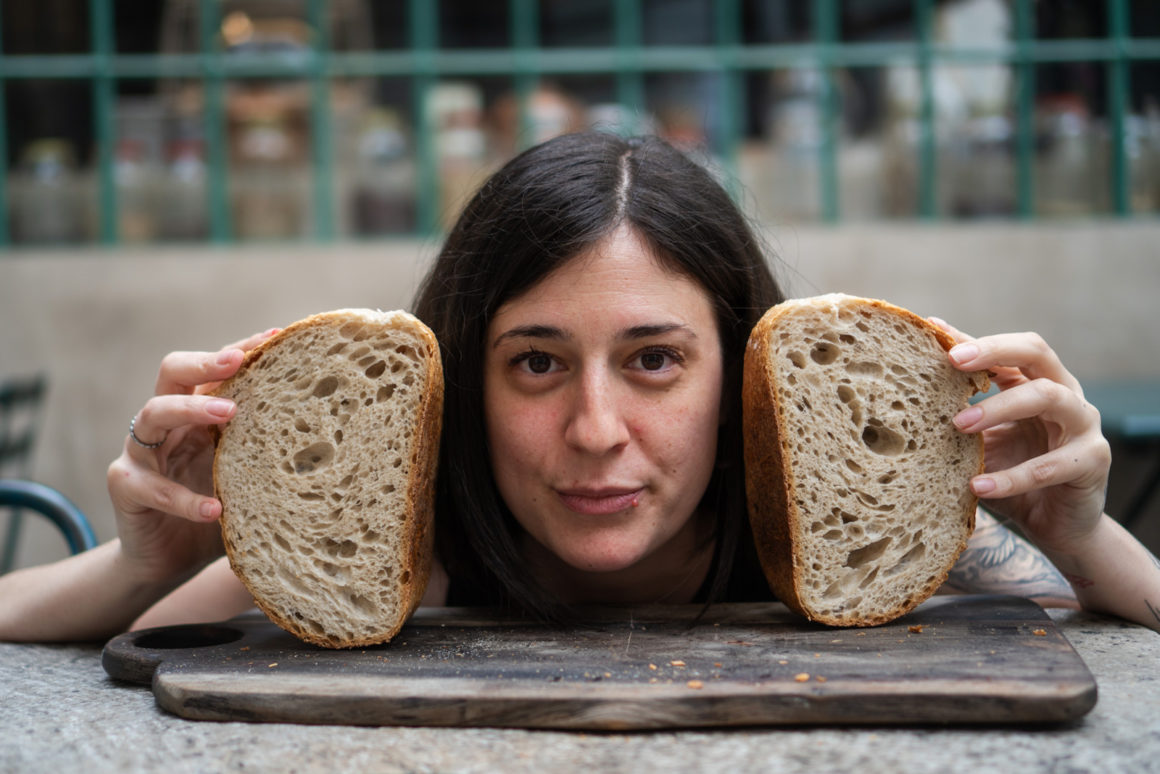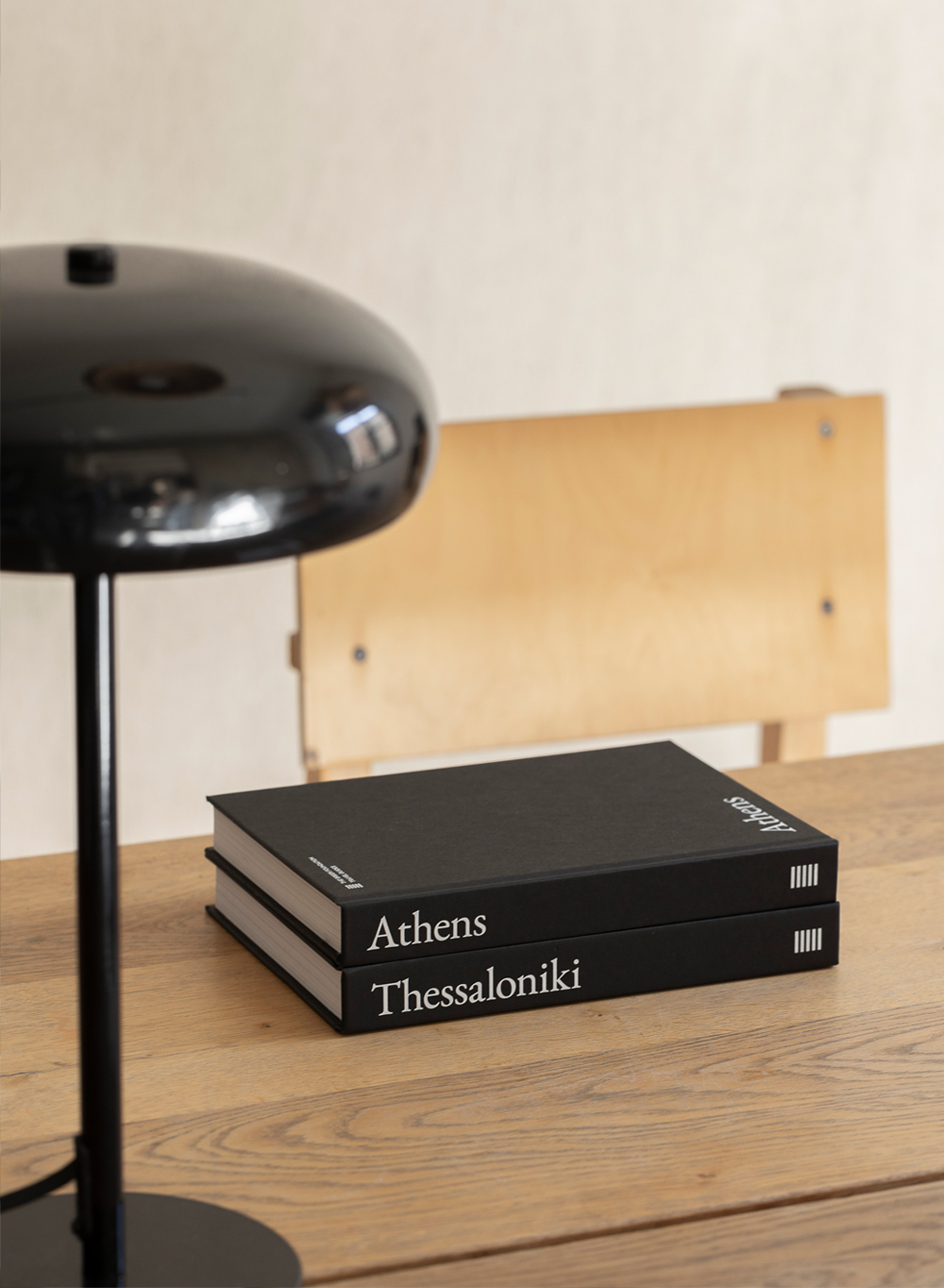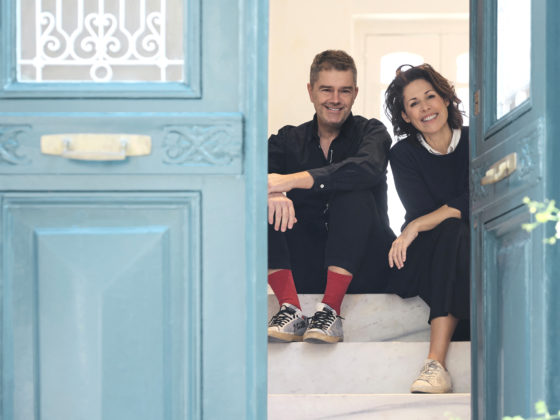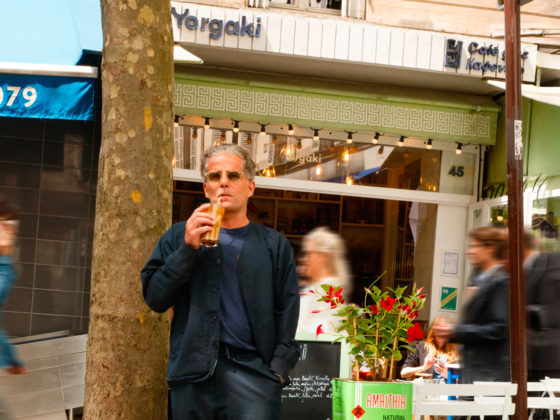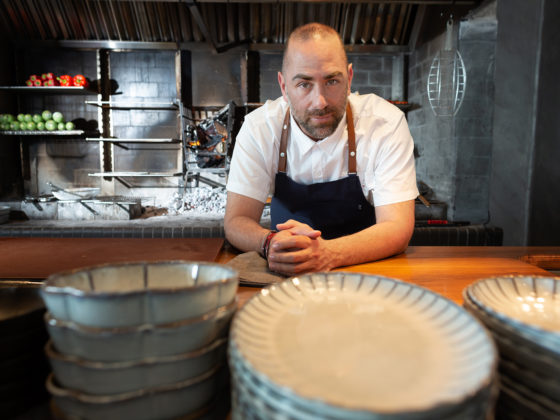Meet Phaedra Mavroeidi-Svana, a passionate baker whose love for cooking and quest for wholesome food led her to specialize in sourdough bread. Inspired by the therapeutic process of dough and her passion for fermentation, Phaedra creates vibrant, flavorful loaves at Line Athens and now at Walk In. Her breads not only delight with natural ingredients but also embody her commitment to sustainability and creativity. For Phaedra, baking is a symbol of community, connection and the pure joy of handmade food.
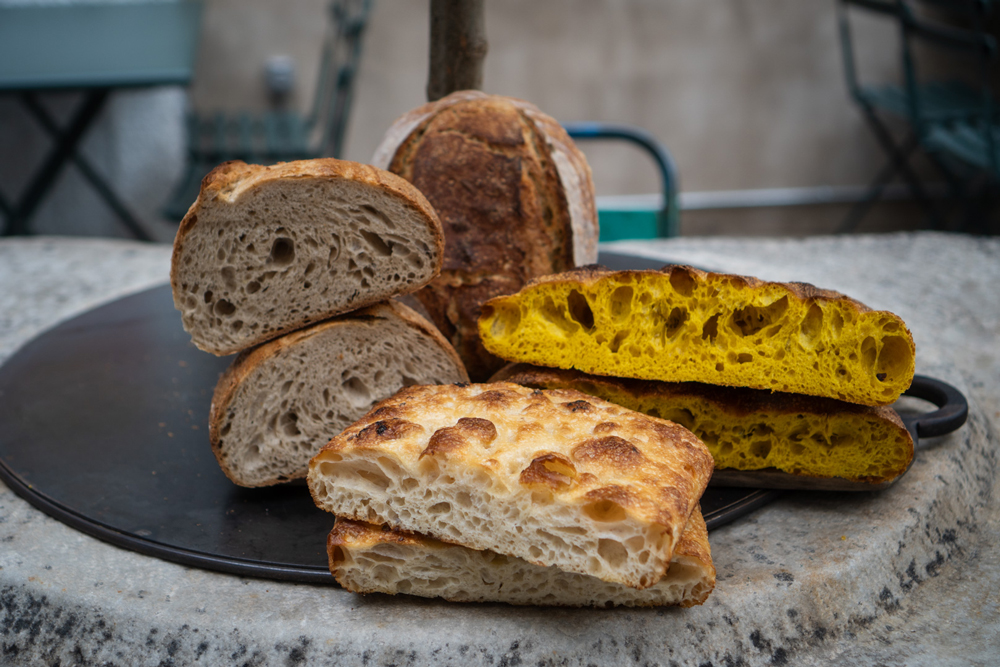
How did your baking journey begin? What inspired you to become a baker, especially specializing in sourdough bread?
I always loved cooking and dreamt of having my own place that would serve food, realizing that I was destined for hospitality. I discovered the therapeutic nature of dough when I became a mom and wanted to feed my son the purest form of food: homemade bread. Soon, I found out about sourdough and fell in love. For me, my profession had to be fun and creative, which is the main reason I decided to become a baker.
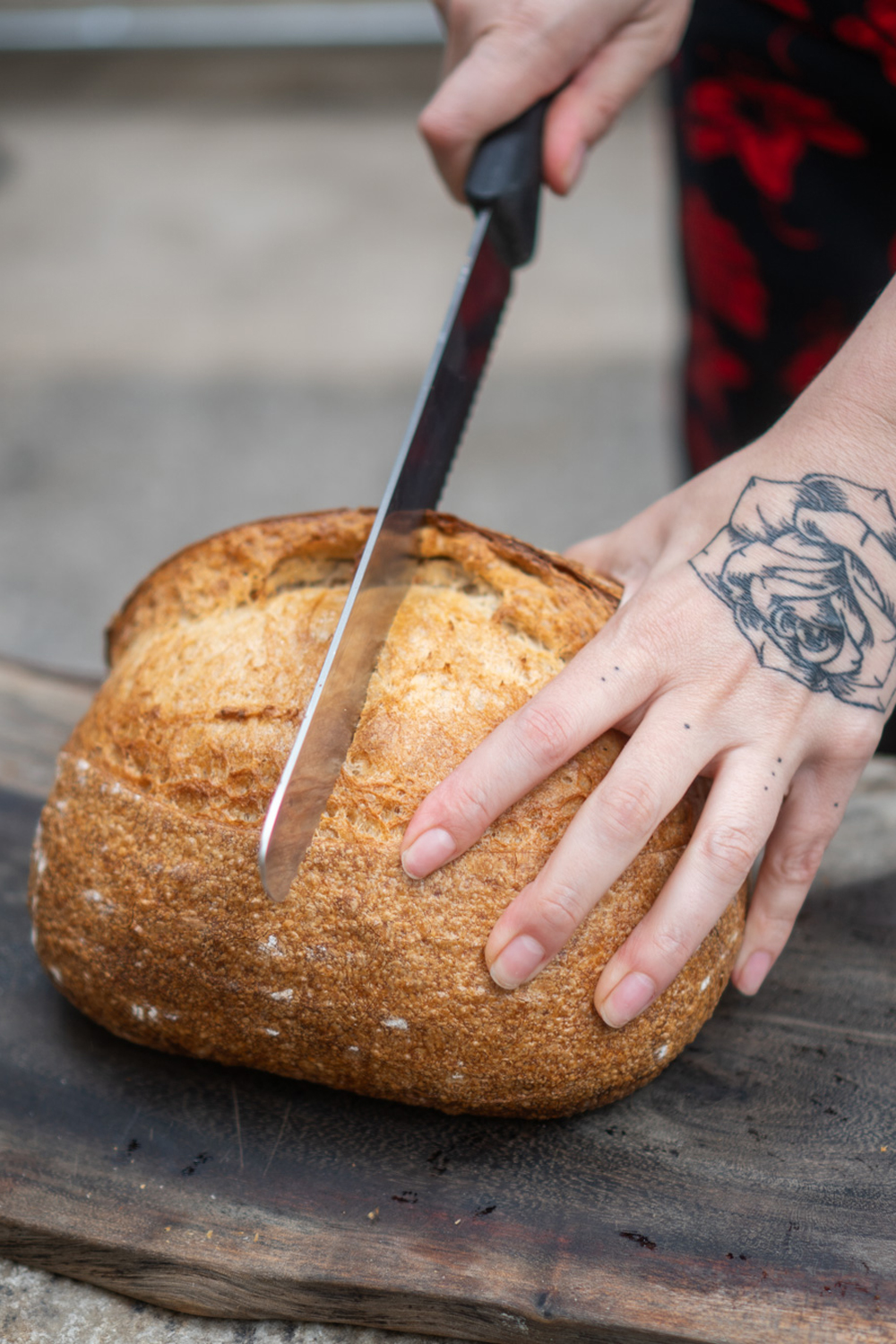
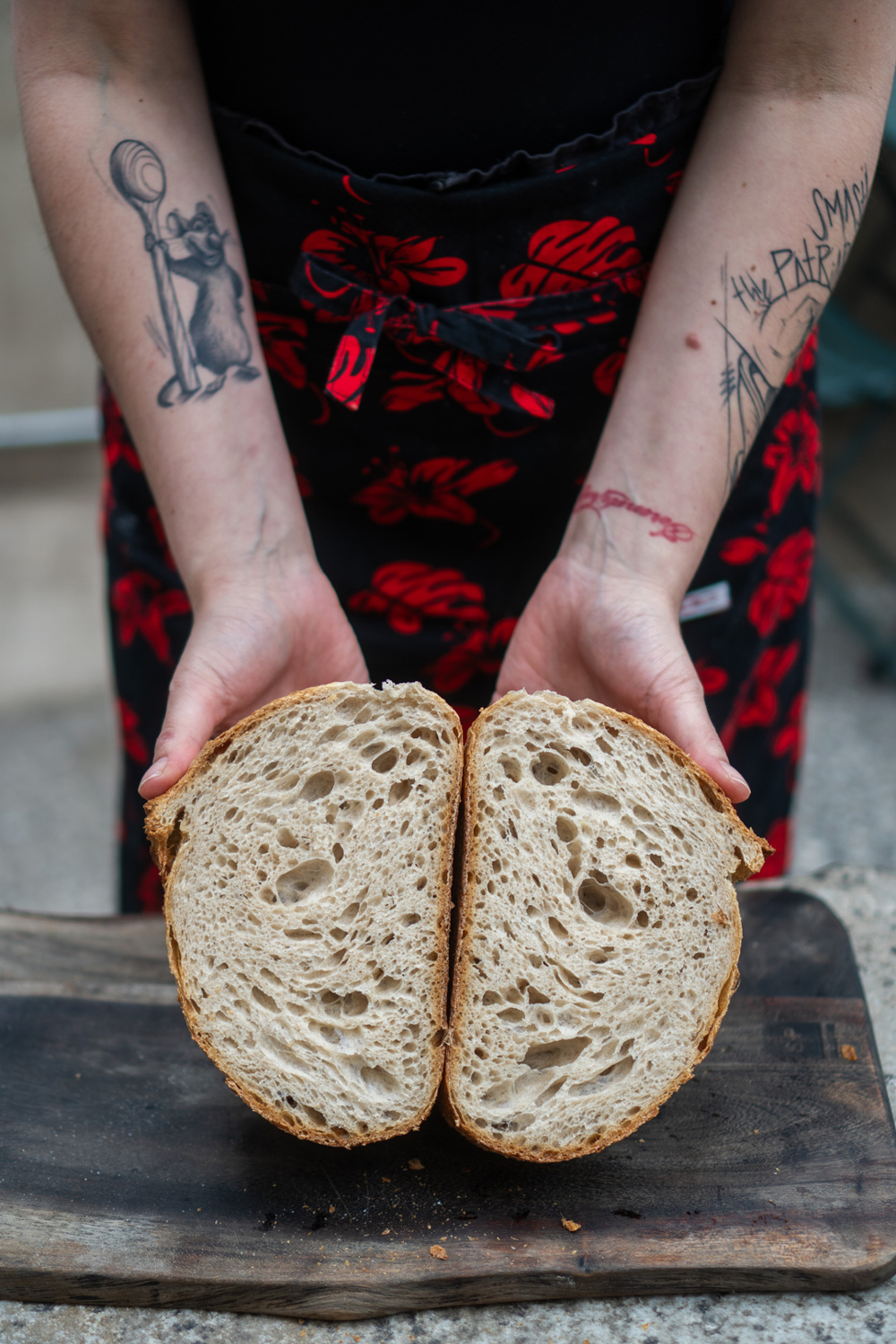
What drew you to the concept of fermentation and how does it influence your bread-making process?
I was into fermentation long before I discovered sourdough. I was making my own kombucha, yogurt, kefir cultures, and even vinegar.
“Fermented food is truly my calling, and sourdough is a part of it, as its process transforms simple food into pure nourishment.”
Your breads are known at Line Athens for their vibrant colors and distinctive flavors. How do you come up with new recipes and flavor combinations? Is your approach similar at the new Walk In too?
I always try to incorporate new elements into my loaves of bread, not only focusing on colors, but when I do, I ensure they come from natural pigments (such as vegetables). Sometimes, it’s about capturing the essence of a known dish in a loaf. My favorite time of day is when my mind is clear, just before I sleep, as that’s when I have the greatest ideas. Of course, I also draw inspiration from social media and believe that recipe development fuels creativity. Walk In is a new venture, but sustainability methods are fundamental to both places.
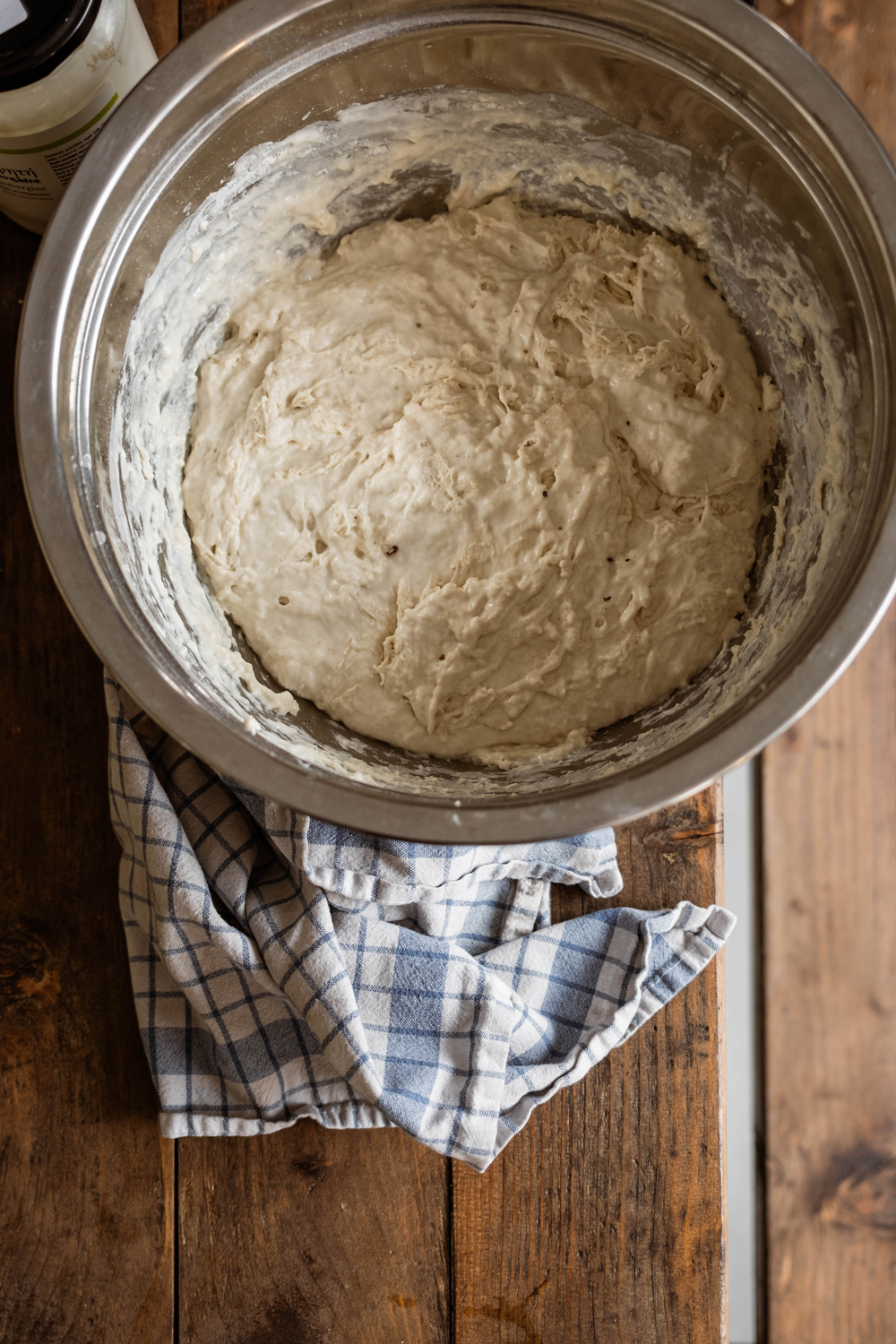
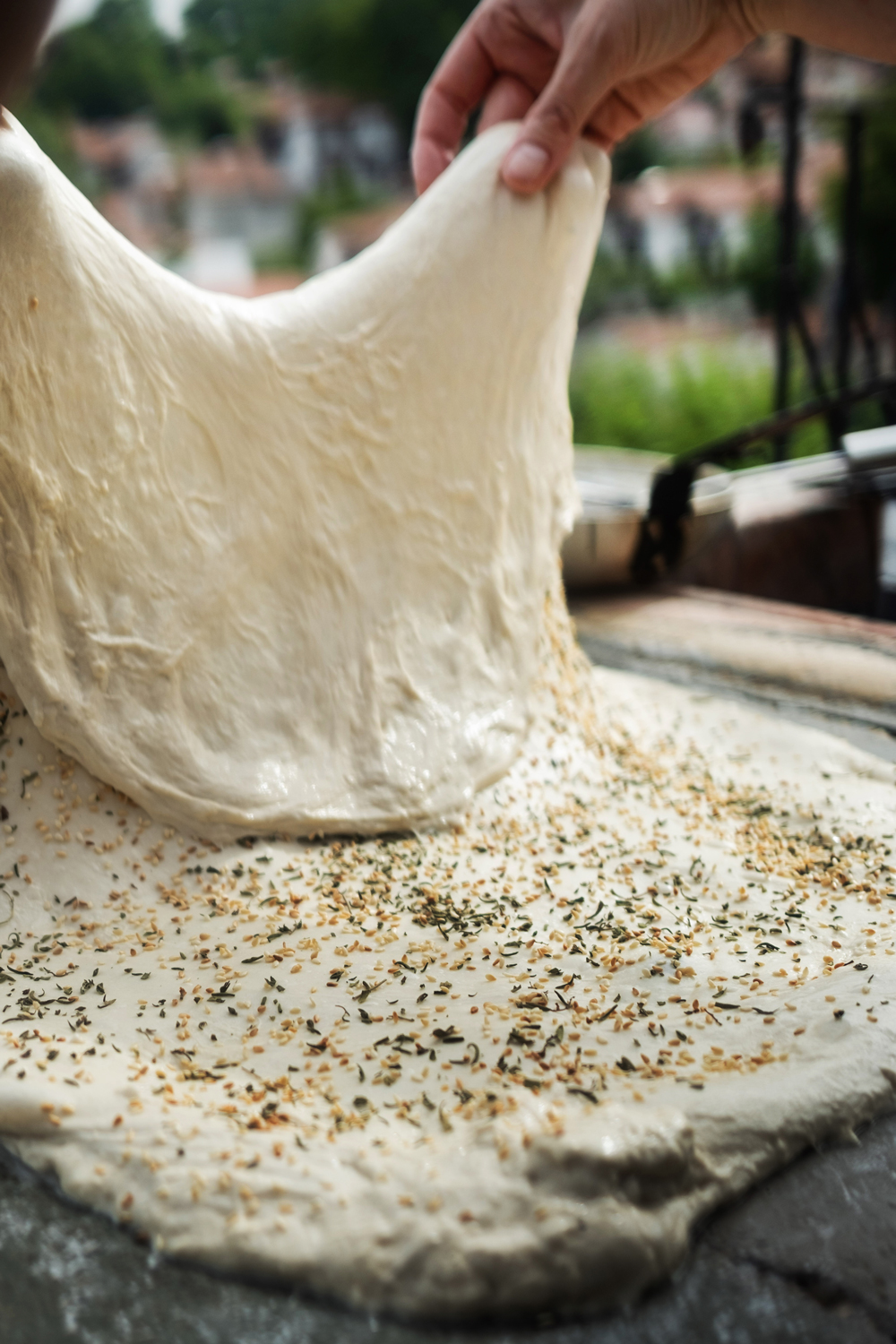
Could you walk us through the process of creating one of your signature breads, from recipe development to the final product?
Let me talk about one of my favorites. When there are leftover loaves, we always upcycle them, either by turning them into rusks or breadcrumbs for various uses. I incorporate them into a new sourdough by replacing a small percentage of flour with breadcrumbs. I follow my usual process (fermentolysis, adding salt, stretch and folds, resting, bulk fermentation, shaping, and cold retardation in the fridge before baking), resulting in a completely different product. This bread has a deeper flavor, is tangy, and boasts the best crust caramelization I’ve ever seen. It’s a prime example of how upcycling enhances the final product.
What challenges do you face as a baker, and how do you overcome them?
While many bakers struggle to balance their professional and personal lives due to demanding schedules and night shifts, I am fortunate to work for a restaurant where I can schedule my own hours. However, maintaining consistent quality for all our products remains a challenge, achievable only through a strongly bonded team sharing the same vision.
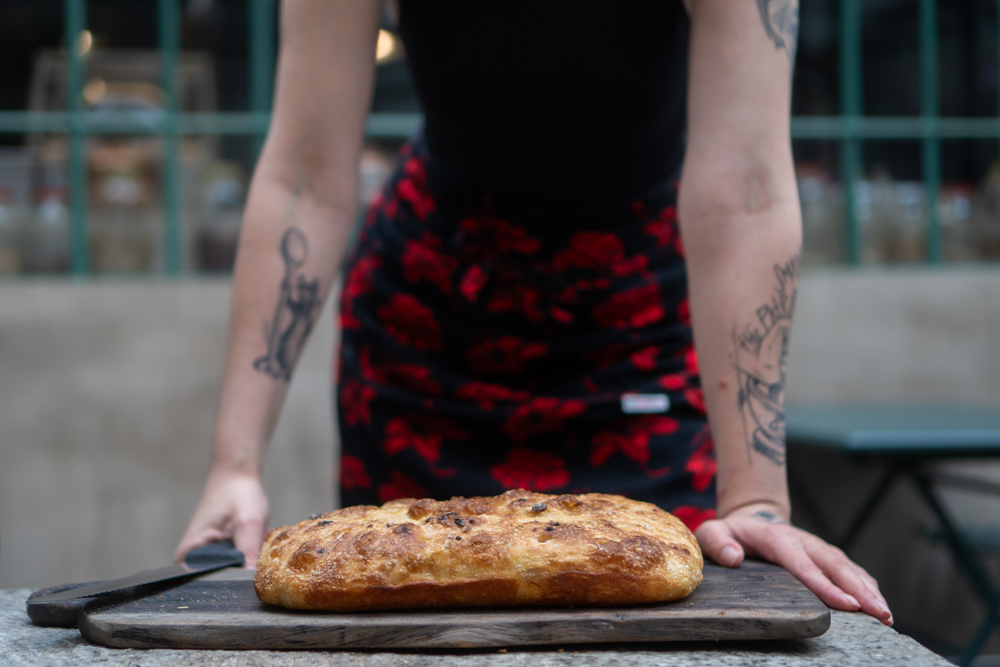
Sustainability seems to be an important aspect of your baking. Can you tell us more about the sustainability practices you use?
As mentioned earlier, my workplace emphasizes zero waste and sustainable practices. Personally, I couldn’t feel any other way. The bakery and lab teams collaborate frequently, incorporating byproducts from winemaking or cocktail crafting into our doughs to create sustainable products. When introducing a new ingredient, I ensure it serves a purpose. For instance, when making potato bread, I considered how potatoes add softness to the dough, using both the water from boiling the potatoes and the skins to minimize waste.
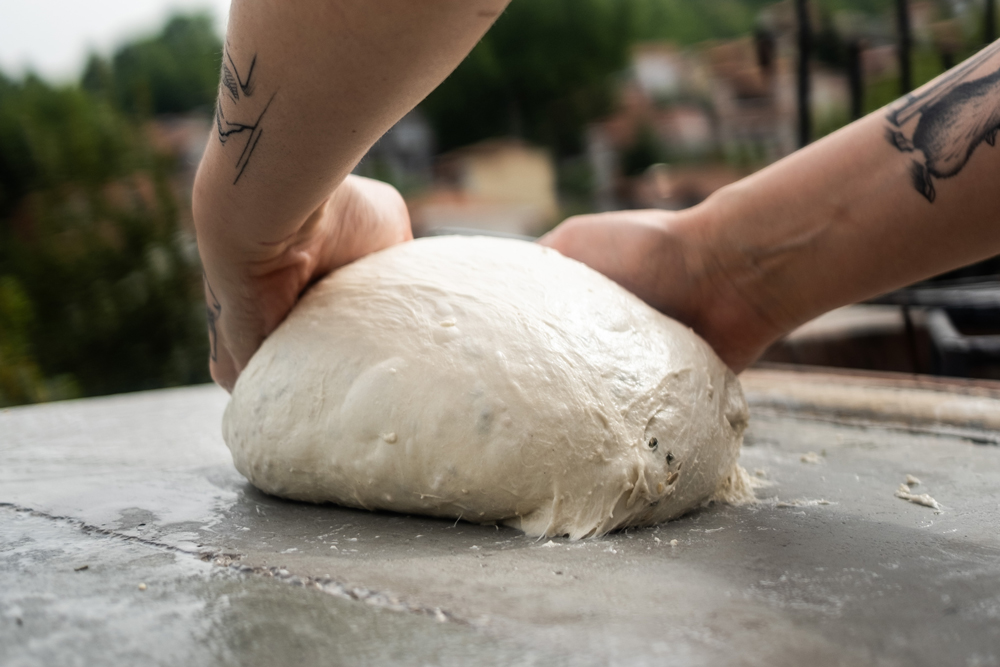
From your perspective, what are the primary driving forces behind the contemporary trend towards natural, wholesome food choices?
Several factors contribute to this trend: the environmental impact of food production, health awareness, growing support for local and sustainable agriculture, and a desire for authentic food sourcing. I strongly resonate with these factors, having grown up in a small village where pure, nourishing food from local sources was the norm.
What role do you think bread plays in people’s lives?
Bread is a staple food present in almost every culture, holding significant symbolic value on our tables, symbolizing sustenance, life, and community. In my world, there’s no room for quickly made, mass-produced bread loaded with additives and preservatives. Everyone deserves a freshly baked loaf that nourishes the body and soul, fostering communication and strengthening relationships. Sharing bread embodies gratitude, belonging, and solidarity within communities and families.
